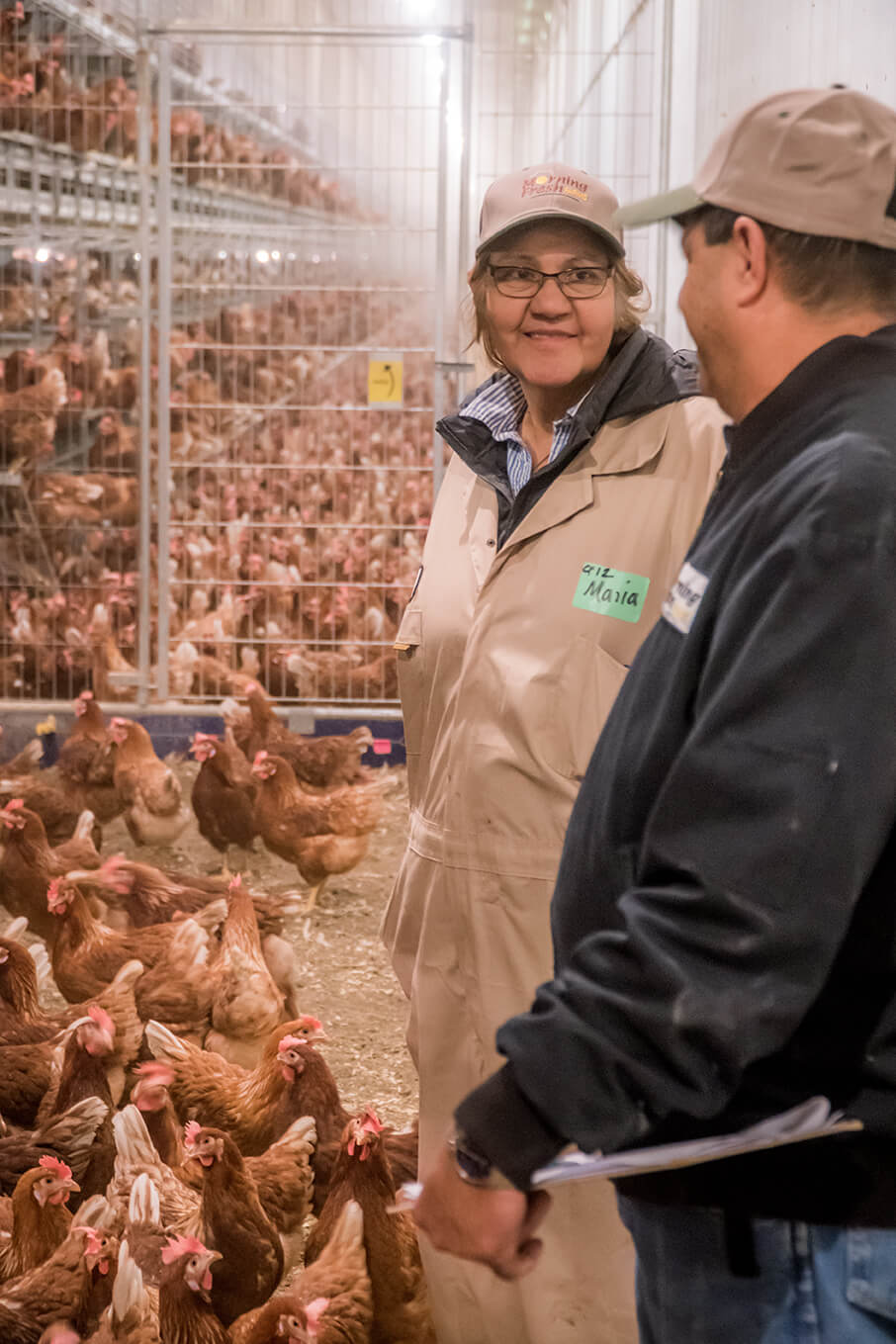Well this poultry-raising family is here to “Crack the Egg Code” by offering a handy little reference guide courtesy of Egg Nutrition Center and the American Egg Board.
So, here we go…
CONVENTIONAL
Laid by hens in enclosures that also serve as nest space. (Most eggs produced and sold in the U.S. are from conventional housing)
CAGE-FREE
Laid by hens not housed in enclosures. Hens roam in a building, room or open area that includes nest space and perches.
ENRICHED COLONY SYSTEM
Laid by hens in enclosures that include perch space, dust bathing or scratch areas and nest space. This type of housing combines the advantages of conventional housing with the enrichments of cage free. This system is not widely used today.
CERTIFIED ORGANIC
Laid by cage free or free range hens raised on certified organic feed and have access to the outdoors. The feed is grown without most synthetic pesticides, fungicides, herbicides, or fertilizers and 100% of agricultural ingredients must be certified organic.
FREE-RANGE
Laid by hens not housed in enclosures and with access to the outdoors. In addition to eating grains, these hens may forage for wild plants and insects.
PASTURE-RAISED
Laid by hens who roam and forage on a maintained pasture area. The USDA does not recognize a labeling definition for pastured eggs as no standards are established.
BROWN
The color of the egg shell has nothing to do with the egg’s nutritional value, quality or flavor. Hens with white feathers and white ear lobes lay white eggs; hens with red feathers and red ear lobes lay brown eggs. (brown eggs tend to be more expensive than white eggs as brown hens are generally larger and consume more food).
PASTEURIZED
Eggs heated to a temperature just before coagulation point to
destroy pathogens.
OMEGA-3 ENRICHED
Laid by hens fed a special diet rich in omega-3’s. These eggs provide more omega-3 fatty acids from 100 mg to over 600 mg per egg.
VEGETARIAN FED
Laid by hens fed a vegetarian diet.





